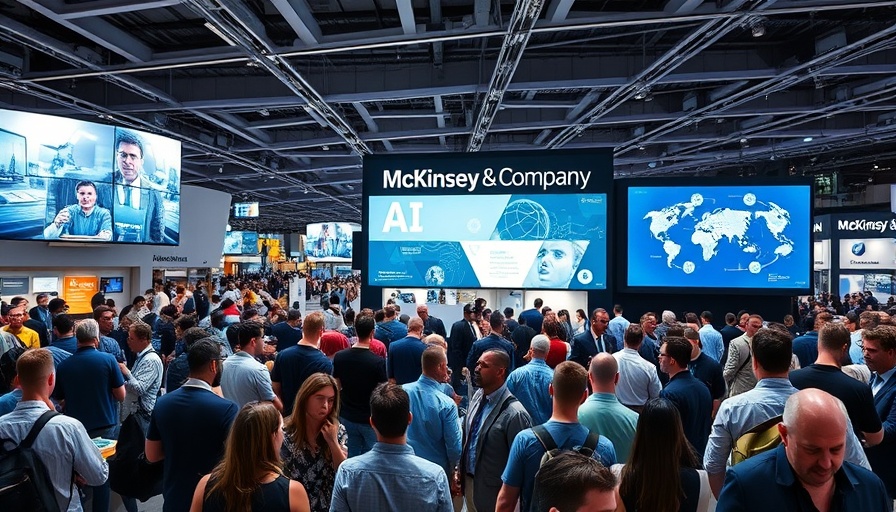
An AI Revolution in Consulting: McKinsey's Game-Changing Tool
In a rapidly evolving technological landscape, consulting giant McKinsey & Company is leading the charge with its internal AI tool, Lilli. Released in 2023, Lilli has dramatically altered the workflow for more than 75% of McKinsey's 43,000 employees, allowing them to streamline tasks traditionally assigned to junior analysts. From creating PowerPoint presentations to drafting client proposals, the tool has made a significant impact on productivity and efficiency.
Kate Smaje, McKinsey's global leader of technology and AI, stated that the firm embraces this AI revolution without the intention of downsizing its workforce. Instead, the aim is to shift junior analysts towards more strategic tasks rather than mundane data entry and presentation creation. This notably aligns with a broader trend across industries where AI increasingly takes over repetitive tasks, allowing skilled employees to focus on high-level contributions.
Understanding the Benefits of AI in Business Operations
The implementation of Lilli signifies more than just time-saving. It encapsulates a new way of working where AI acts as a robust assistant. A case study from McKinsey revealed that Lilli handles over half a million prompts each month, saving employees 30% of the time otherwise spent on information gathering. Not only does this technology enhance efficiency, but it also ensures that employees engage with their roles in more meaningful ways.
Tapping into AI: Practical Insights for Entrepreneurs
Entrepreneurs can learn valuable lessons from McKinsey's approach to AI. By investing in tools that automate routine tasks, small business owners can shift their focus to innovation and strategy. Moreover, using proprietary tools like Lilli could lead to a competitive advantage, provided sensitive client data remains secure.
This shift toward AI is not unique to McKinsey; firms like Bain and Boston Consulting Group are also harnessing similar functionalities to enhance their operations. As automation becomes more prevalent, understanding how to integrate these technologies effectively will be crucial for entrepreneurs across various sectors.
Future Predictions: Embracing the AI Shift in the Workplace
The ongoing trend of AI replacing entry-level roles indicates a significant change in the job market. According to recent research, new graduates constituted only 7% of new hires in major tech companies in 2024, reflecting a 25% drop from 2023 as AI systems increasingly handle tasks once reserved for junior staff.
The implications are profound: as AI continues to evolve and gain capabilities, adapting to this shift will be paramount for both employers and employees. Embracing this transformation could mean not just survival, but thriving in an automated future.
Conclusion: Positioning Yourself for Success in the AI Era
As the landscape of work continues to evolve with AI, understanding its implications is crucial for staying relevant. Tools like McKinsey's Lilli showcase how automation can enhance business operations while preserving the human element of work. Entrepreneurs should consider how they can leverage similar technologies to improve efficiency and increase their operational capacity.
Now is the time to explore how you can utilize AI in your own business model to safeguard your place in the future job market. Embrace technology today to position yourself for success tomorrow.
 Add Row
Add Row  Add
Add 




 Add Row
Add Row  Add
Add 
Write A Comment